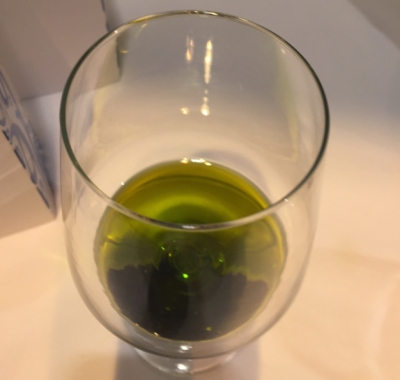The right price for oil
It is unwise to be overly thrifty when choosing what olive oil to buy. Rather than the apparently lower price, one should consider the best quality-price ratio and the flavouring efficiency of the oil. There is a problem however: although it is deeply rooted in our culinary tradition, we are still incapable of discerning good from bad oil.

The price. Everything revolves around the price. When we stand in front of the supermarket shelves, the temptation to save money is always there, whatever we are gazing at. This seems to be particularly true for olive oil, a product that seems to have been robbed of all its virtues of originality and identity.
We would advise you to be extremely cautious of low prices: it is unwise to use price as the sole guideline when deciding what to purchase. It is worth noting however that we should be equally cautious of disproportionately high prices, because an expensive oil is not necessarily superior.
Consumers are often incapable of recognising quality, and can’t even be bothered to. As always, every time there is a promotional sale, they opt for the cheapest product. Although the price is undoubtedly a legitimate and understandable reason for choosing one or the other oil, the consumer should try to make a more informed decision. The problem however is that the consumers do not know enough about oil, although their knowledge of the subject has certainly grown. They use it, often abundantly, but they don’t know how to discern an oil of superior quality. Moreover, they often ignore what is the best type of oil for one dish or another.
Up to now, all attempts made to direct the consumers towards more informed choices have been unsuccessful, because the campaigns failed to act on a rational level, but were targeted instead at the consumers’ fears. It was suggested for instance that the cheaper oils were either intrinsically bad for our health or the result of sophistications, but this is not always true. Indeed, some of the cheaper oils on the market are even better than the more expensive ones.
In order to give olive oil due recognition of its value, we must make our interlocutor, i.e. the consumer, aware that his or her decision on what to purchase should be based on knowledge. The mistake made by many marketing experts operating in this sector was to give inadequate and even incomprehensible advice.
Some say that oil should never cost less than a certain amount of money, but this is not necessarily true, because the price of oil is influenced by countless factors.
It is impossible to establish a minimum price for oil, because of the intrinsic nature of the market, complex and extremely unstable. It must furthermore be noted that the prices of extra virgin olive oil varies extensively according to the country of origin, climatic and seasonal factors, and its availability on the market.
However, if on one hand it is true that there is no univocal standard price for every place and situation, it should be clear that it is unwise to be overly thrifty when choosing what olive oil to buy. The decision should be dictated first and foremost by our personal taste, and ideally, in order to do so, we should taste all the olive oils available in the store, a task less daunting than it appears, because usually the range isn’t that wide. If money is an issue, the choice should not only take into account the quality : price ratio of the oil, but also its dressing efficiency. This is the proper way to assess an oil, but the consumers are often unaware of this, because nobody ever explained it to them.
Quality is only understood when it becomes one with our culture. Quality comes before everything else, and thriftiness, though reasonable and justified, should never depress quality. It makes no sense to choose a mediocre oil, given that we have to satisfy the requirements of our body and ensure its functionality.
Olive oil should also satisfy us from a hedonist viewpoint: we must feel pleasure, not discomfort or disgust when we use it. The real challenge is to motivate the consumers towards a better choice. For this reason, we must explain that olive oil is more than just a staple, or else the lowest, most ingratiating price will always win.
We must introduce them to the culture of oil, expanding their knowledge on this subject. Nothing however should be imposed, but we should find ways of stimulating the consumers’ intellect. For instance, most people are unaware that more money is saved by purchasing a premium extra virgin oil instead of a cheaper one. The reason is simple: a high-quality oil has a greater dressing efficiency, and only very little is needed to enhance the flavour of any dish.
Often, only one tablespoonful, roughly 13 ml, is more than enough. Less oil, but of a higher quality, and certainly more functional. Less fats and calories will be ingested, and both our health and the taste of our food will benefit from it. These are facts that should be highlighted, not the shocking news that in recent years has so often made the headlines, which only alarm the consumers instead of leading them towards knowledge. The key is always education, but nowadays we tend to avoid it, because it is a difficult task and cannot guarantee a 100% success rate.
Photo by Luigi Caricato
To comment you have to register
If you're already registered you can click here to access your account
or click here to create a new account


Comment this news